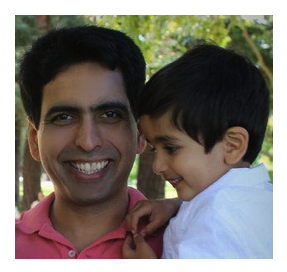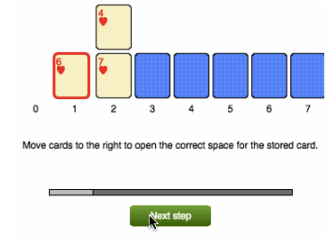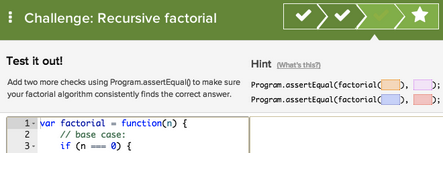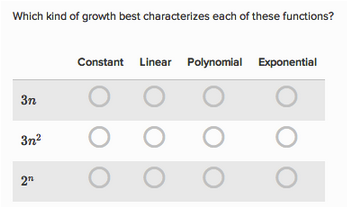Today we’re happy to announce that Khan Academy is live en Français. You can access our content all in French whether you’re from Paris or Port-au-Prince. Just visit fr.khanacademy.org to start learning in French.
We thought it would be fun to show you some of the team of dedicated translators who helped make this possible. Merci to one and all and thanks for your hard work and enthusiasm in making this happen!
![image]()
Mathieu Bardeau
After a Master’s degree in management at Edhec Business School, I put into practice what I had been taught, and joined the media industry. Working with the Khan Academy is great because it combines my skills in addition, subtraction, and even multiplication, with my passion for telling stories.
![image]()
Thomas Blasselle
I am a math addict! I taught math after college, and eventually became a school book editor specializing in various sciences subjects. Khan Academy’s math look more like what I believe maths should be: a living matter made of reflection and research.
![image]()
Pierre Bondareff
I am a physics and chemistry teacher and recently also got my PhD in physics. When I heard about Khan Academy, I was immediately very enthusiastic to participate in this modern adventure. I like teaching to others and Khan Academy allows me to do it in a very direct way. Wherever you are, with a well-working education system or not, an internet connection will be enough to connect yourself on the website and to learn at your pace.
![image]()
Bastien Bruneau
I specialized in renewable energy at Ecole Polytechnique, where I am still working for my PhD on plasmas and photovoltaic research. I strongly believe that the Khan Academy brings something new and innovative to the way knowledge is passed on.
![image]()
Romain Cariou
I am at the beginning of the end of my thesis on material science and photovoltaic cells, at the Ecole Polytechnique. When I was a student, YouTube was more full of videos of cats and babies, rather than Newton’s Laws, Matrix or Stereochemistry. The democratic way of sharing knowledge with Khan Academy’s approach of is a great initiative; all you need is internet and a little curiosity to benefit from it.
![image]()
Eloa Chosson
I’ve always been captivated by mathematics. After I graduated from the Toulouse School of Economics, I went to Australia and ended up training horses on remote stations where most children are taught by their parents through a homeschooling system. I thus got a grasp of the importance of distance education and this is why I decided to get involved in the Khan Academy project. I now enjoy translating Sal’s videos because of his innovative approach and his way of making maths concepts easy to understand and remember.
![image]()
Isabelle Dautriche
I am a PhD student at Ecole Normale Supérieure, working on language acquisition (how do infants acquire their native language?) Making some videos for Khan Academy is a great combination with my PhD because when my research gets stuck, I can do a 10min video which will be useful for kids, teenagers and adults. Perhaps this is actually the most useful job that I’ll ever have!
![image]()
Yassine El Ouarzazi
I grew up in Casablanca, Morocco, and moved to France when I was 17 to go to engineering school. I have a passion for science and education, and I immediately fell in love with Khan Academy after watching Salman Khan’s TED talk. I hope this project will help my two kids and millions of other ones in my continent of origin, Africa, to have access to “a free world-class education for anyone anywhere”.
![image]()
Ramïn Farhangi
After getting an Engineering degree from Cornell University and Ecole Centrale Paris, I now live my passion as a Math/Physics teacher in Madrid. I joined the Khan Academy team in France because it’s fun to make videos, it improves my teaching skills, and because I help providing the world (and notably developing countries) with high quality lessons.Working for Khan Academy has indeed given my life more meaning!
![image]()
Lydie Morel
I graduated from a PhD of Neuroscience and spent four years in Boston where I learned English and discovered Salman Khan and his work with the Khan Academy. When I got the lucky opportunity to join the Bibliothèque sans Frontières’ team of translators, I grabbed it! As a kid, I used to play with math exercises in my free time: I always tried to help my schoolmates see the elegant, logic and fun aspects of mathematics.
![image]()
Muy-Cheng Peich
I am currently almost at the end of a PhD in social cognition which focuses on social interaction deficits in neurodegenerative diseases. I have always loved helping others understand things that fascinated me or things that I had found challenging to learn. I strongly believe in the use of technologies to reduce social inequality in education- that’s one the reasons why I joined BSF as the head of the education department.
![image]()
Sophie Pelloux
After a PhD in biology, I finally became a general practitioner. I have always been interested in education, in medicine and beyond, and I strongly believe that each student should learn at his/her own pace. I discovered Khan Academy several years ago, while I was trying to help my cousins understand math. One of their issues at that time was that the content was available in English but not in French… I am glad to see that the mathematical part is now ready to run in French, and to have the opportunity to translate the health content videos!
![image]()
Nicolas Roux
I am currently involved in a PhD where I study water resource in arctic areas, where permafrost (frozen ground) makes access difficult. Teaching is for me as important as research, so I naturally saw in Khan Academy a unique opportunity to reach a larger audience than the one classic teaching could ever possibly allow me to reach.
Also a special thanks to the translation team at Bibliothèques Sans Frontière!
![Share on Facebook]()
![Tweet #YouCanLearnAnything]()
![]()














































